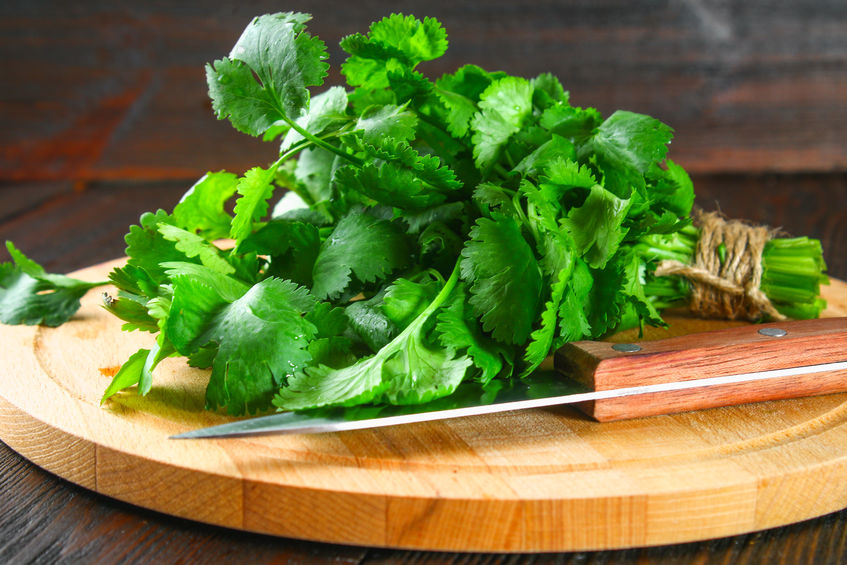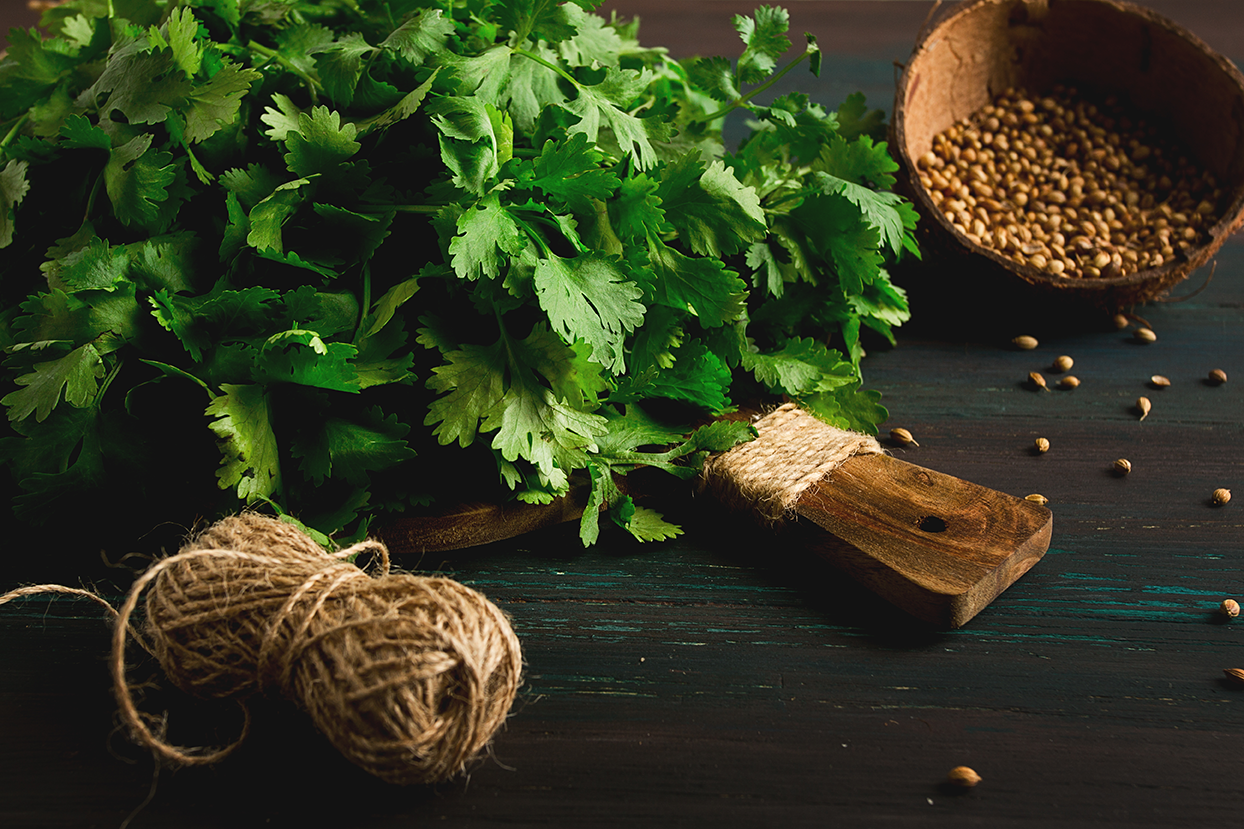Coriander, known scientifically as Coriandrum sativum, is a versatile herb celebrated globally for its distinctive flavor and aromatic presence in various cuisines. While its leaves (cilantro) and seeds are perhaps the most popular parts, the entire plant is edible and packed with a surprising array of health benefits.
Beyond its culinary appeal, coriander has been utilized for centuries in traditional medicine systems.
Understanding Coriander: Leaves vs. Seeds
It’s important to distinguish between the two main forms of coriander you’ll encounter:
- Cilantro (Coriander Leaves): These fresh, bright green leaves have a pungent, citrusy, and somewhat peppery flavor. They are widely used as a garnish or ingredient in dishes like salsas, curries, and salads, particularly in Mexican, Indian, and Southeast Asian cuisine.
- Coriander Seeds: The dried seeds are typically ground into a powder or used whole. They possess a warm, nutty, slightly citrusy, and earthy flavor, distinct from the leaves. Coriander seeds are a staple in spice blends, baked goods, and various savory dishes around the world.
While they come from the same plant, their flavor profiles and some of their chemical compositions differ, leading to slightly varied uses and benefits.
Health Benefits of Coriander
Both the leaves and seeds of coriander offer impressive health advantages:
- Rich in Antioxidants: Coriander is packed with several antioxidants, including terpinene, quercetin, and tocopherols. These compounds help combat oxidative stress in the body, protecting cells from damage caused by free radicals. This can contribute to reducing the risk of chronic diseases.
- Anti-inflammatory Properties: The potent antioxidants and other bioactive compounds in coriander possess anti-inflammatory effects. This can be beneficial for conditions characterized by inflammation, such as arthritis and certain digestive issues.
- Supports Digestive Health: Coriander has long been used to aid digestion. It can help alleviate symptoms like bloating, gas, and indigestion by stimulating the production of digestive enzymes. Some studies suggest it may also have antispasmodic properties, which can ease intestinal cramps.
- May Lower Blood Sugar: Research, particularly on coriander seeds, indicates they may help lower blood sugar levels by promoting enzyme activity that removes sugar from the blood. This makes coriander a potentially beneficial addition for individuals managing diabetes or looking to stabilize blood sugar.
- Heart Health Benefits: Coriander may contribute to heart health by helping to lower “bad” LDL cholesterol and triglyceride levels, while potentially increasing “good” HDL cholesterol. Its diuretic properties may also help manage blood pressure.
- Potential Antimicrobial Effects: Certain compounds in coriander exhibit antimicrobial properties, helping to fight against harmful bacteria and fungi. This could contribute to its traditional use in food preservation and its potential role in boosting immunity.
- Brain Health and Mood: Some preliminary studies suggest that the antioxidant and anti-inflammatory properties of coriander might offer neuroprotective benefits, potentially improving memory and reducing anxiety.
- Skin Benefits: Due to its anti-inflammatory and antimicrobial properties, coriander can be beneficial for skin health, potentially helping with conditions like acne, rashes, and irritation.
Properties of Coriander
- Nutrient-Dense: Coriander, especially its leaves, is a good source of Vitamin K, essential for blood clotting and bone health. It also provides Vitamin A, Vitamin C, folate, and minerals like potassium, manganese, and iron.
- Aromatic Compounds: The distinctive aroma and flavor of coriander come from its rich profile of volatile oils, including linalool, geraniol, and borneol, which also contribute to its medicinal properties.
Contraindications and Potential Side Effects
While generally safe for most people when consumed in typical food amounts, there are a few considerations and potential contraindications for coriander:
- Allergies: Some individuals may develop an allergic reaction to coriander, although it’s relatively rare. Symptoms can include skin rashes, itching, swelling, or respiratory issues.
- Drug Interactions:
- Blood Thinners (Anticoagulants): Due to its high Vitamin K content (especially the leaves), consuming large amounts of coriander might interfere with blood-thinning medications like warfarin. Vitamin K plays a role in blood clotting, so it’s important to maintain consistent intake if you’re on these medications.
- Diabetes Medications: Given its potential to lower blood sugar, individuals taking diabetes medication should monitor their blood sugar levels carefully when consuming significant amounts of coriander to avoid hypoglycemia.
- Blood Pressure Medications: As coriander may have a mild diuretic effect and could lower blood pressure, it’s wise to exercise caution if you’re on medication for hypertension.
- Pregnancy and Breastfeeding: While typically safe in food amounts, there isn’t enough reliable information about the safety of consuming large, medicinal amounts of coriander during pregnancy or breastfeeding. It’s best to err on the side of caution and stick to culinary quantities.
- Sun Sensitivity: Some anecdotal reports suggest that consuming very large amounts of coriander might increase sensitivity to the sun, leading to sunburn more easily in some individuals. This is not widely documented but worth noting.
Incorporating Coriander into Your Diet
Adding coriander to your meals is easy and delicious.
- Fresh Cilantro: Sprinkle chopped fresh cilantro over tacos, curries, soups, salads, and stir-fries. It’s fantastic in guacamole and salsas.
- Coriander Seeds (Whole or Ground): Use whole seeds in pickling, spice rubs for meats, or to flavor bread. Ground coriander is a key ingredient in many curry powders, rubs for roasted vegetables, and can be added to stews and tagines.
- Teas: Coriander seed tea can be made by steeping crushed seeds in hot water, often used for digestive comfort.

Coriander is more than just a culinary staple; it’s a powerhouse of nutrients and beneficial compounds that can significantly enhance your well-being. As with any food or herb, moderation and awareness of your individual health conditions are key.
Do you love the taste of coriander, or are you one of those who find it tastes like soap?
Share your thoughts in the comments below!

